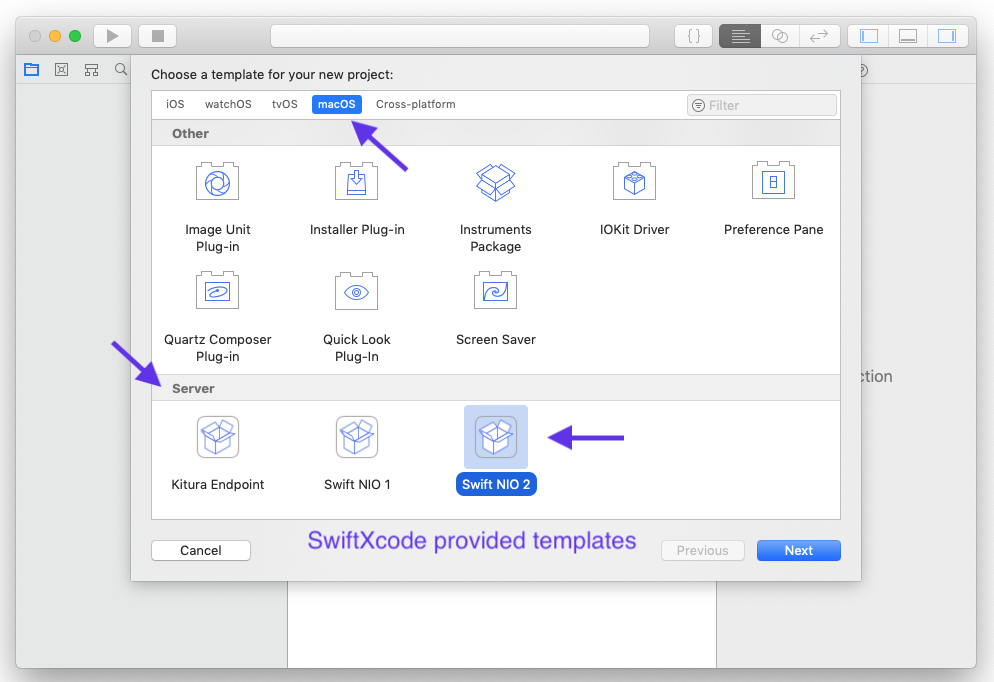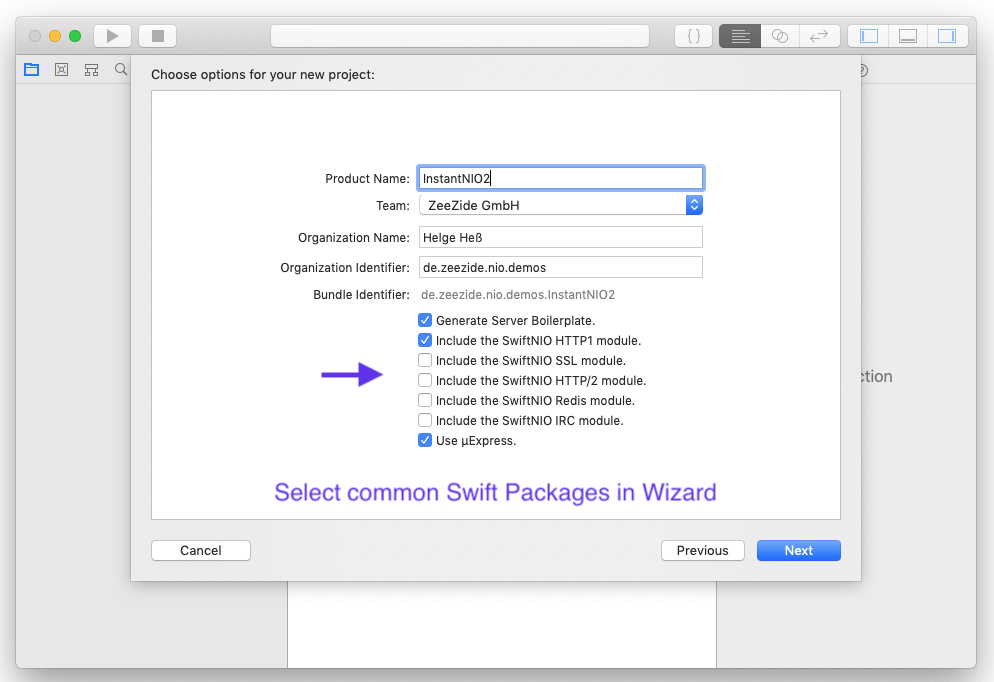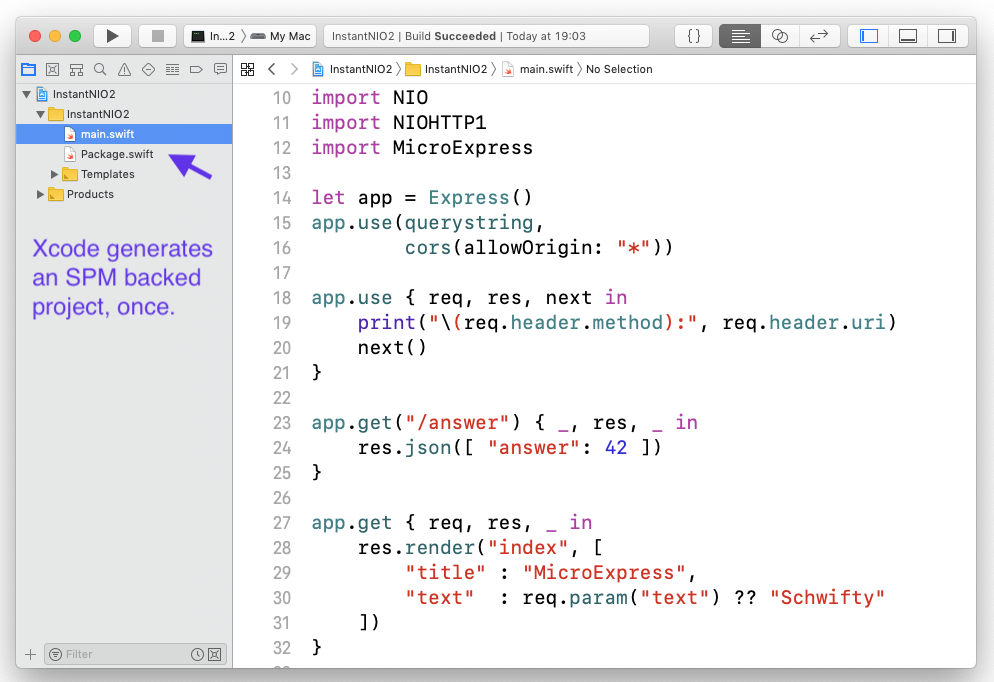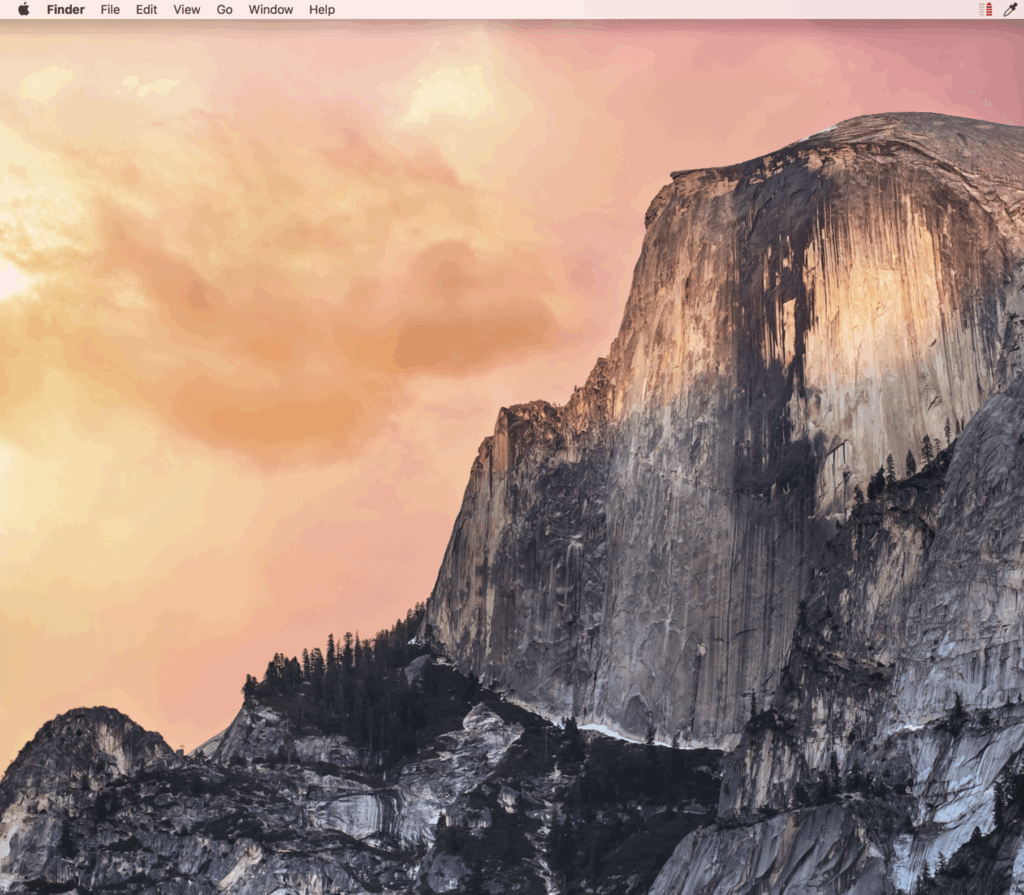






Breaking News from WWDC 2019: Xcode 11 is finally supporting Swift Package Manager. Rendering this project obsolete.
Use Swift Package Manager, packages directly from within Xcode, w/o having to jump to the Terminal. With swift builds, in a non-annoying way. Build large dependencies once, not again and again for every project. Do not require an Internet connection just to create a new project.
... finally got sherlocked at WWDC 2019!
Too much text? Want a GIF? Here you go.
Goals
1. Use Swift Package Manager directly from within Xcode
State of the art (duration: some minutes or more):
- Open terminal.
- Call
mkdir MyProject. Do acd MyProject. - Call
swift package init,kitura init, or something similar. - Call
swift package generate-xcodeprojto create the Xcode project. - Open
MyProject.xcodeproj, find and select the right scheme - Build and Run. You need to add a package? Start again at step 4, sometimes 3.
Goal (duration: a few seconds):
- Create a project from within Xcode. (Cmd-Shift-N, follow wizard)
- Build and run. Works.
You need to add a package? Just edit
Package.swiftand build.



2. Reduce Compile Time
Calling swift build as a tool takes some second(s).
Goal:
Instead of doing calling swift build on every build,
do a swift build only when the Package.swift file is changed.
Produces a static library (pretty big, bundles up all the packages),
which is directly linked against the Xcode target.
Changing a source file:

3. Reduce Initial Compile Time
State of the art: When you create a new Swift Package Manager project, for instance a Kitura endpoint, the initial setup takes a long time:
- all the required packages are resolved and fetched from the Internet
- all those packages are built from source
For a plain Kitura HelloWorld this is about 3-5 minutes before you can get going, even on a fast machine.
But worse: This has to be done every single time you create a new project! Want to create HelloKitten? Another 3mins lost. HelloCow? Again.
Goals, alongside goal 1:
- Create a project from within Xcode. (Cmd-Shift-N, follow wizard)
- Edit your main.swift or whatever
- Build and run. Only build your own project sources.
Build time on first build, straight after project creation:

3.1. Bonus: Do not require Internet to create new projects
Internet is only required when you install an image, once. After that, the bundled image is available and as many projects as desired can be created.
Installation
brew tap swiftxcode/swiftxcode
brew install swift-xcode
swift xcode link-templates # <-- important!
Extra Images
Images are pairs of Xcode templates and precompiled Swift packages (used by those templates). The precompilation happens when you install a Homebrew image formula (or manually using the GIT repo) and can take some time. Afterwards you can create new Xcode projects using those templates, without having to wait for the SPM bootstrap (fetch and compilation of the dependencies).
You can find the available images over here: Swift Packages within Xcode, this includes:
- SwiftNIO 2 (
brew install swift-xcode-nio2) - Kitura (
brew install swift-xcode-kitura) - SwiftObjects (
brew install swift-xcode-wo) - SwiftNIO 1 (
brew install swift-xcode-nio1) - Old: SwiftServerAPI (
brew install swift-xcode-server-api)
After installing an image, always run swift xcode link-templates so that
Xcode can find the templates.
Image: Kitura
(One time) compile time: ~5 minutes. Image size: ~100MB. Fresh project setup from create to run: 3 seconds.
brew install swift-xcode-kitura
swift xcode link-templates # <-- important!
A blog post with all the details: Instant Kitura with SwiftXcode.
Using it for iOS Projects
Here is the basic version:
- Create new Project in Xcode (File Menu / New / Project)
- Select iOS / Swift Package Manager App
- Give it a name, optionally preconfigure SPM modules you want
- Build project (can take a moment w/o an image)
- In Package.swift, add modules as you wish, e.g.
cows - in AppDelegate.swift,
import cows, doprint(cows.vaca()) - Build project and run
Comparison w/ other Package Managers
Note that swift-xcode is not really a package manager on its own.
The package manager is still the official
Swift Package Manager,
just enhanced a little.
So you inherit a lot of its limitations. For example it cannot deal with resources, produce frameworks, or bundles. Yet, you can still build reusable modules with it.
So is it a replacement for Cocoa Pods or Carthage? In some cases it can be. In other cases it can’t :-)
What it looks like …
Build a Mobile Cows application in 3 minutes:

Documentation
Documentation can be found here: SwiftXcode.github.io/docs/.
